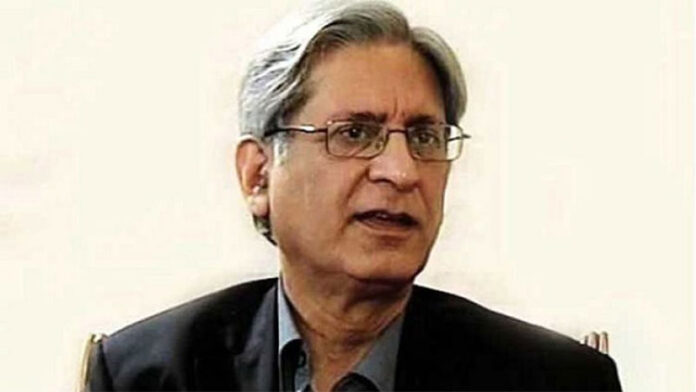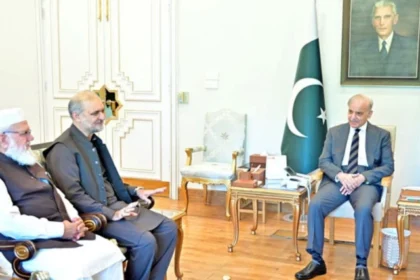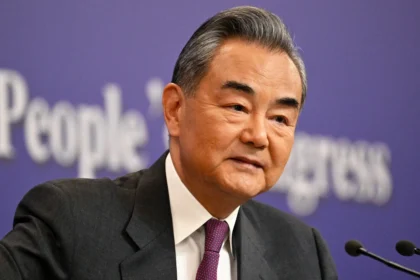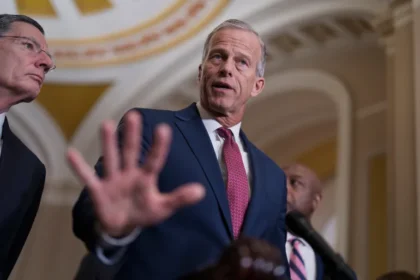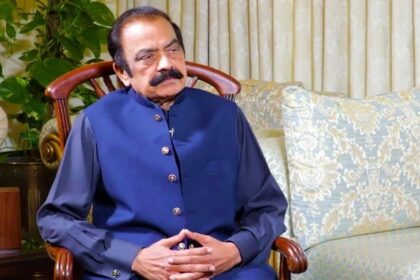When Pakistan’s democracy was under siege by military rule, one lawyer refused to stay silent: Aitzaz Ahsan. He challenged and shook the crutches of power. Ahsan, the name of resistance, was still in his twenties when he first entered the corridors of power as a provincial minister. His early political ascent, however, did not come without principle. Early in his political career, Ahsan demonstrated his willingness to sacrifice power for principle, resigning after violent state crackdowns on political dissent. In a striking public address, he not only denounced the Sharif family – the leading force behind the Pakistan Muslim League-Nawaz (PML-N), then a coalition partner of the PPP – but also took direct aim at Chief of Army Staff General Qamar Javed Bajwa. Ahsan alleged the military chief committed a “crime” by allegedly facilitating the acquittal of the Sharifs in a series of corruption cases — an extraordinary charge that underscored his growing role as an unflinching critic of both civilian and military establishments.
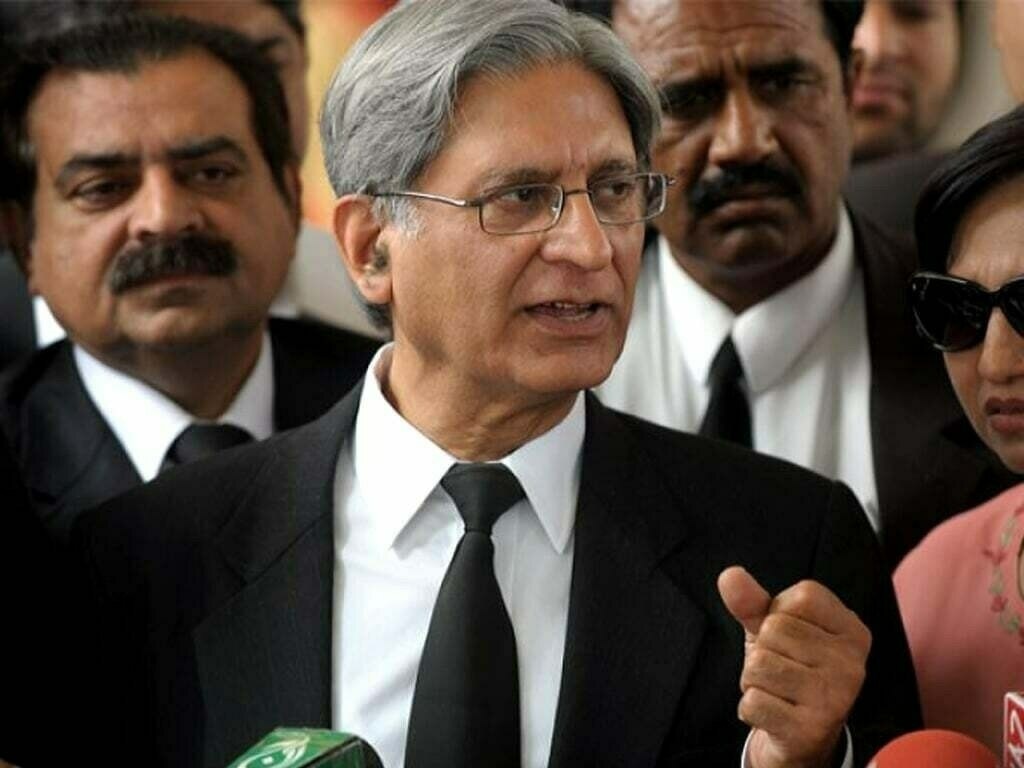
Professionally, Ahsan is a barrister by law and a senior advocate of the Supreme Court of Pakistan. He is a senior partner of Aitzaz Ahsan & Associates. Born in 1945 in Murree and educated at Cambridge and Gray’s Inn, Ahsan returned to Pakistan in 1967, carrying elite training but a restless democratic spirit. He then appeared in the Central Superior Services examination, where he reportedly topped. However, he didn’t join the government service. Political chaos ensued as military dictators overthrew civil supremacy. Chaudhry Aitzaz Ahsan was a major name during “Operation Fair Play” against the Zia regime and was imprisoned several times for the movement of “Restoration of Democracy”, whose objective was to bring civil democracy over military dictatorship.
Ahsan played a pivotal role in the Lawyers’ Movement (Wakala ki Tahrik), also known as the Movement for the Restoration of Judiciary or the Black Coat Protests, initiated by the lawyers of Pakistan in response to the former president and army chief Pervez Musharraf’s actions of 9 March 2007, when he unconstitutionally suspended Iftikhar Muhammad Chaudhry as the chief justice of Pakistan’s Supreme Court. The movement was led by SCBA presidents Munir A. Malik, Aitzaz Ahsan, and Ali Ahmad Kurd, along with other leading lawyers. People see the Adliya Bachao Tehreek as a precursor to the eventual Lawyer’s Movement. Renowned politician and lawyer Aitzaz Ahsan helped bring together a powerful group of constitutional lawyers. For decades, these lawyers had resisted Pakistan’s cycles of military rule and had long opposed the various periods of military rule in Pakistan’s short history. He orchestrated a “campaign of motorcades” to take the chief justice to various bar associations around the country. Yet critics argue that Ahsan’s later silence on party compromises blurred the very moral clarity that once defined him.
After the events of May 9 and the human rights being abused, Barrister Aitzaz Ahsan emerged once again as a prominent constitutional voice by challenging the Supreme Court’s May 7, 2025, ruling that upheld the trial of civilians in military courts. In his petition, filed through senior advocate Sardar Latif Khosa, Ahsan stated that “the matter carries grave implications for fundamental rights and requires full bench deliberation.” By emphasising widespread constitutional and human rights concerns, Ahsan employed the legal technique of invoking the principles of separation of powers and uniform access to justice. His petition urged the court to ensure that civilian cases remain within the domain of independent judicial forums, not military tribunals.
Following the incident, Aitzaz Ahsan’s membership in the Pakistan Peoples Party (PPP) was revoked. In response, he recited a couplet, reflecting his sentiments on the situation.
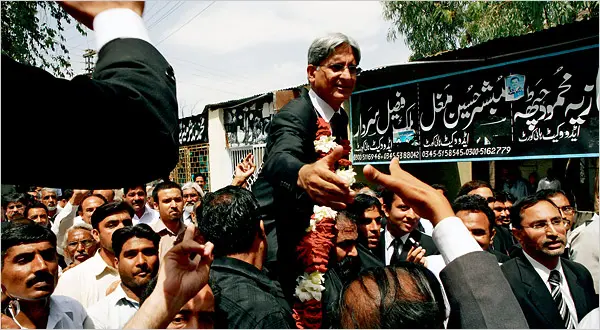
The question still resonates in the political corridors of Pakistan: Was Ahsan the last principal democrat in a system that punishes dissent or did party politics blur his moral clarity? This debate still holds the stage that Aitzaz Ahsan is still a principled democrat or one whose vision has become poorly portrayed by his own act in the political arena of the country. Having gained the reputation of a die-hard advocate of the rule of law, especially in the times when General Musharraf was leading the country, becoming a legendary figure of the Lawyers Movement, Ahsan was a long-standing part of the conscience of the Pakistani legal and democratic way. His moment in question (usually considered a good sign) of trying to reverse a civilian trial in a military court has been placed by loyal supporters as a last stand of his dedication to the constitution, even with his own party leading the government. However, what came after was a significant silence that naturally raised suspicion on whether it was induced or a free will. The question of whether the PPP left him in the lurch because he was saying the truth to power or whether he gave up the truth in favour of political opportunism is another screen through which this issue has to be viewed. The question that lingers is whether Aitzaz Ahsan remains the last principled democrat in a system hostile to dissent—or whether political compromises have blurred his moral clarity.





